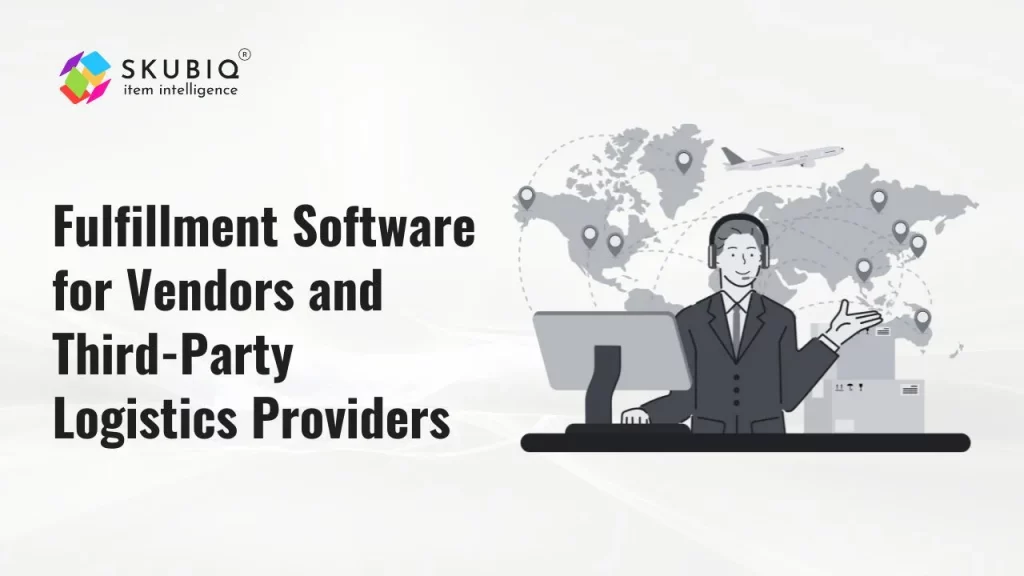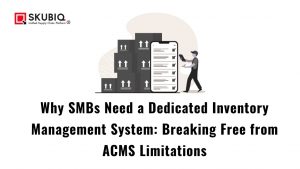In today’s fast-paced world of e-commerce and global trade, efficient order fulfillment is essential for businesses to stay competitive. Whether you’re a vendor managing your own inventory or a third-party logistics provider serving multiple clients, having the right fulfillment software can make all the difference. In this article, we’ll explore some of the top fulfillment software solutions tailored for vendors and 3PLs, helping you streamline operations, manage inventory effectively, and deliver exceptional customer service.
Understanding Order Fulfillment Software
Order fulfillment software is a digital solution designed to automate and streamline the process of receiving, processing, and delivering customer orders. It serves as the backbone of e-commerce operations, ensuring orders are fulfilled accurately and efficiently.
Importance of Inventory Management
Effective inventory management is crucial for businesses to optimize stock levels, minimize holding costs, and prevent stockouts or overstocks. With the right software, vendors and 3PLs can track inventory in real-time, forecast demand, and synchronize inventory across multiple sales channels.
Exploring E-commerce Software
E-commerce software platforms provide the infrastructure for online businesses to manage their website, product listings, shopping carts, and payment processing. Integrated with order fulfillment software, e-commerce platforms enable seamless order processing and customer management.
Introducing SPS Commerce
SPS Commerce is a leading provider of cloud-based supply chain management solutions, offering a comprehensive suite of services for vendors and 3PLs. Their platform facilitates EDI (Electronic Data Interchange) communication, order fulfillment, and collaboration with trading partners.
Benefits of Warehouse Inventory Management
Warehouse inventory management software optimizes warehouse operations by organizing inventory, improving picking and packing processes, and enhancing visibility into stock levels and locations. It enables efficient use of warehouse space and minimizes errors in order fulfillment.
Implementing Multi-channel Integration
Multi-channel integration allows businesses to sell their products through various online and offline channels, such as websites, marketplaces, social media, and brick-and-mortar stores. Fulfillment software with multi-channel integration capabilities synchronizes orders and inventory across all channels, providing a seamless shopping experience for customers.
The Role of WMS Software
Warehouse Management System (WMS) software is specifically designed to optimize warehouse operations, including inventory management, order picking, packing, and shipping. It increases warehouse efficiency, reduces fulfillment errors, and improves order accuracy and delivery speed.
Evaluating Order Fulfillment Solutions
When selecting an order fulfillment solution, it’s essential to consider factors such as scalability, integration capabilities, ease of use, customer support, and cost. Evaluating different options based on these criteria will help you choose the right solution for your business needs.
Key Features to Look for
Key features to look for in fulfillment software include real-time inventory tracking, order routing and prioritization, automated order processing, customizable reporting and analytics, integration with e-commerce platforms and marketplaces, and scalability to support business growth.
Challenges and Solutions in Fulfillment
Fulfillment operations face challenges such as inventory inaccuracies, order processing delays, shipping errors, and customer service issues. However, with the right software and strategies in place, businesses can overcome these challenges and deliver exceptional service to their customers.
Future Trends in Fulfillment Technology
The future of fulfillment technology is characterized by advancements in automation, robotics, artificial intelligence, and data analytics. These innovations will further optimize warehouse operations, improve order accuracy and speed, and enhance the overall customer experience.
Conclusion
In conclusion, choosing the right fulfillment software is essential for vendors and third-party logistics providers to streamline operations, manage inventory effectively, and deliver exceptional service to their customers. By leveraging the latest technology and best practices in fulfillment, businesses can stay ahead of the competition and thrive in today’s dynamic market.
Frequently Asked Questions (FAQs)
1. What is the role of order fulfillment software for third-party logistics providers?
Order fulfillment software helps 3PLs automate and streamline the process of receiving, processing, and delivering customer orders on behalf of their clients, ensuring accuracy, efficiency, and timely delivery.
2. How does multi-channel integration benefit businesses?
Multi-channel integration enables businesses to reach customers through various sales channels, synchronize inventory and orders across channels, and provide a seamless shopping experience, ultimately driving sales and customer satisfaction.
3. What are some key features to consider when evaluating fulfillment software?
Key features to consider include real-time inventory tracking, order routing and prioritization, automated order processing, integration capabilities, customizable reporting, and scalability to support business growth.
4. What are the common challenges in fulfillment operations?
Common challenges include inventory inaccuracies, order processing delays, shipping errors, and customer service issues. However, with the right software and strategies, these challenges can be overcome to deliver exceptional service to customers.
5. What are the future trends in fulfillment technology?
Future trends include advancements in automation, robotics, artificial intelligence, and data analytics, which will further optimize warehouse operations, improve order accuracy and speed, and enhance the overall customer experience.



